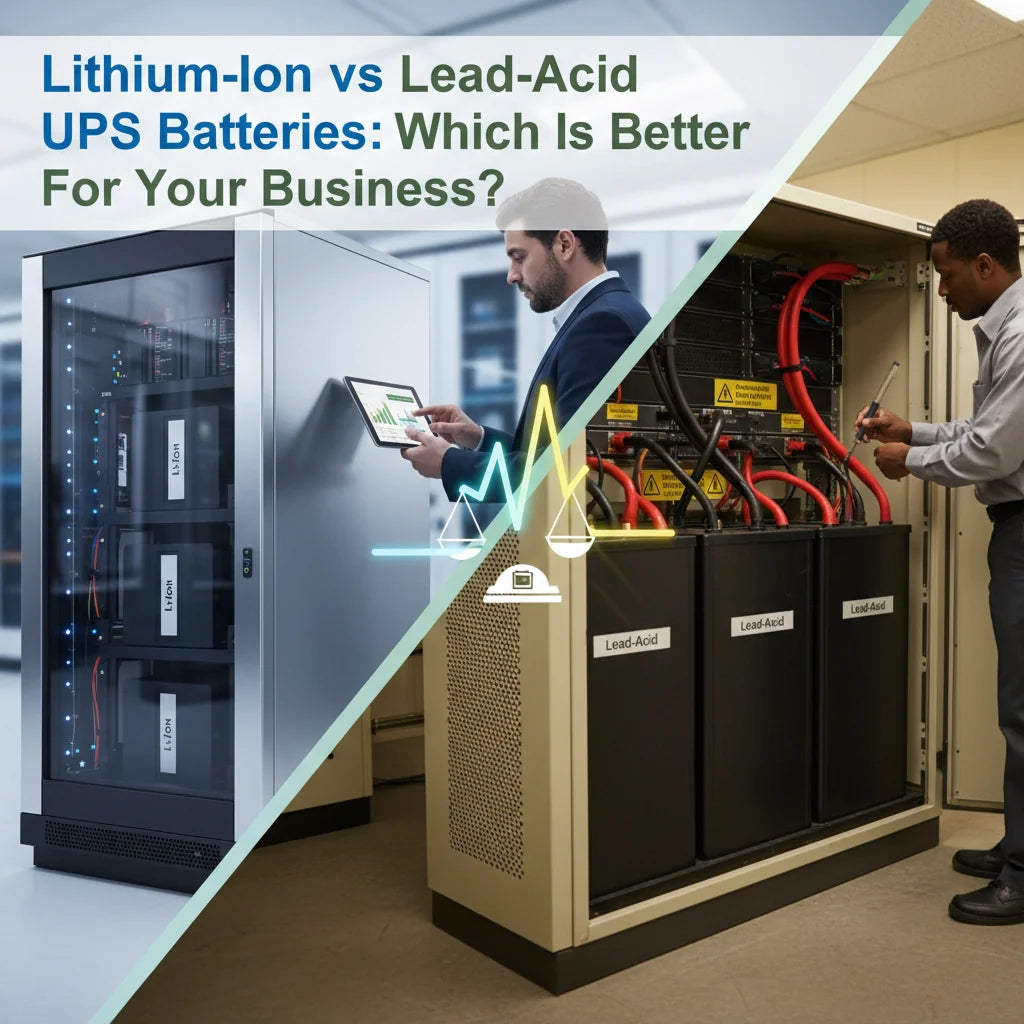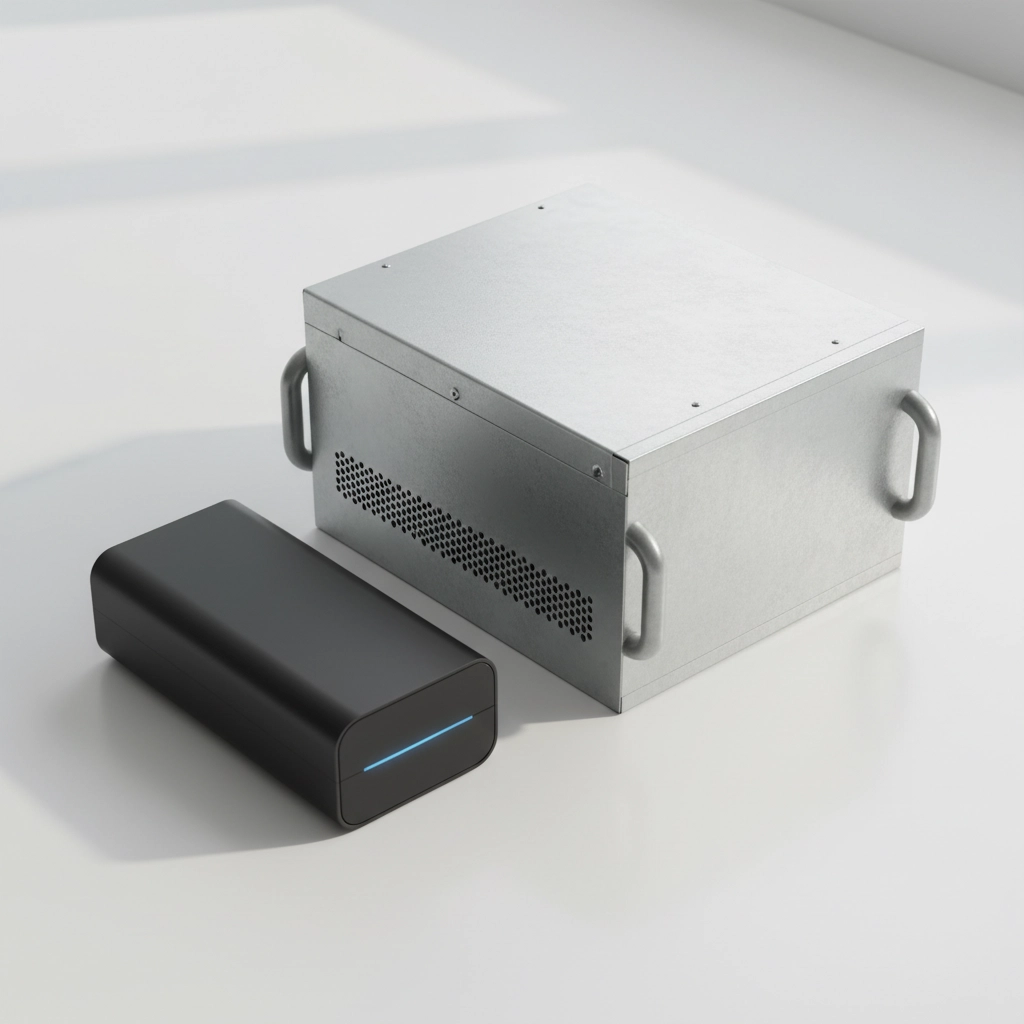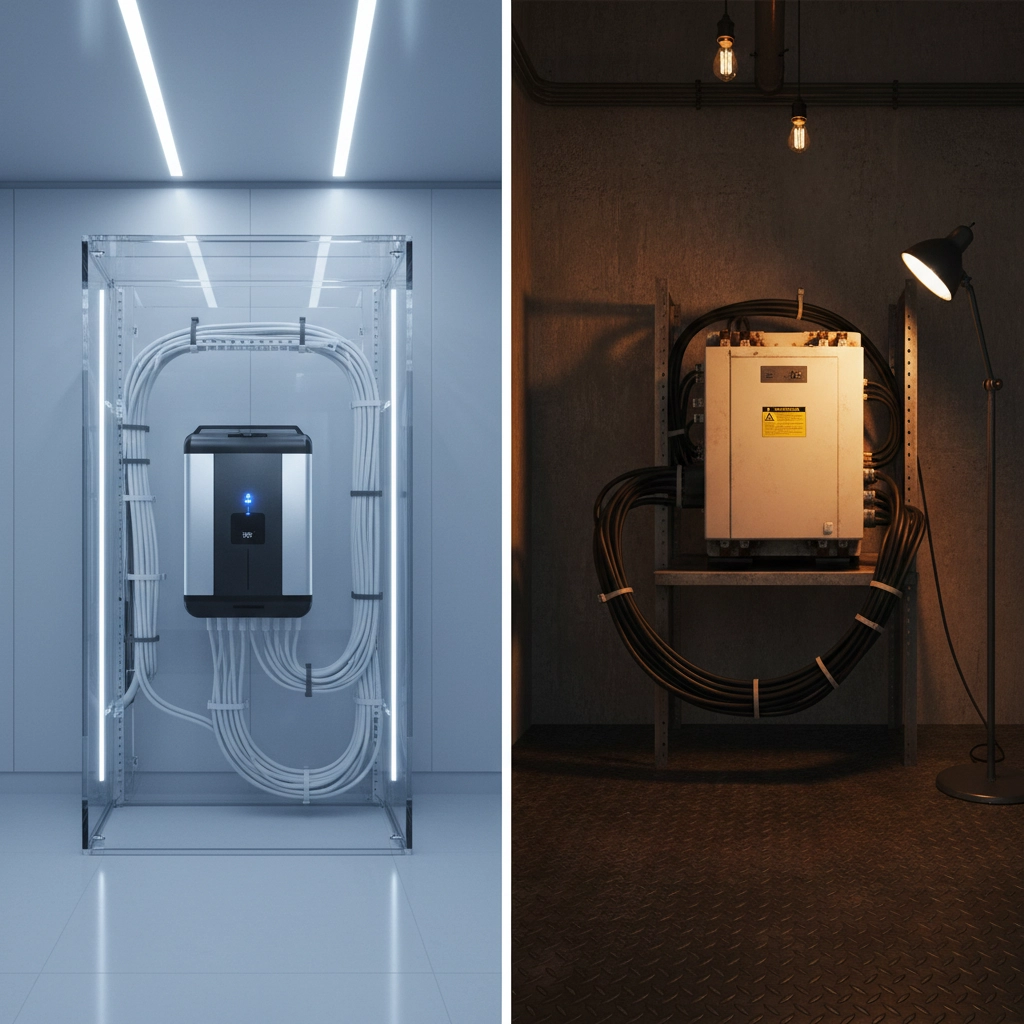
Lithium-Ion vs Lead-Acid UPS Batteries: Which Is Better For Your Business?
Share
When it's time to upgrade your UPS system or replace aging batteries, you're faced with a choice that can impact your business for years to come. Should you stick with tried-and-true lead-acid batteries, or make the jump to newer lithium-ion technology?
It's not just about specs on a datasheet. This decision affects your bottom line, your maintenance schedule, and how much floor space you'll need in your server room. Let's break down what each technology brings to the table.
The Lithium-Ion Advantage
Lithium-ion UPS batteries are the new kids on the block, but they're making waves for good reason. These batteries pack a serious punch in a much smaller package.

Space is Money Here's a game-changer: a 1kg lithium-ion battery stores about 150 watt-hours of electricity. That's six times more than the same weight in lead-acid. For businesses where every square foot of floor space costs money, this matters big time. Your new UPS system could take up 60% less space than your current setup.
Charging Speed That Actually Makes Sense Nobody likes waiting around. Lithium-ion batteries charge in about 2 hours compared to lead-acid's marathon 24-hour charging time. When you're dealing with multiple power events or testing your backup systems, that faster recovery time keeps your operations running smoothly.
Built for the Long Haul These batteries are workhorses. We're talking 15-20 years of service life, and they can handle way more charge-discharge cycles than lead-acid. In fact, they can be cycled about 25 times more than traditional batteries before showing wear. That's a lot of blackouts and brownouts your business can weather.
Less Babysitting Required Maintenance is where lithium-ion really shines. Instead of checking your batteries twice a year, you're looking at annual inspections. No memory effects to worry about, low self-discharge rates, and no surprise failures that catch you off guard.
The depth of discharge is another winner – you can safely use 85% or more of the battery's capacity without damaging it. That means more runtime when you actually need it.
Lead-Acid: The Reliable Workhorse
Don't count out lead-acid batteries just yet. They've been keeping businesses running for decades, and there are still plenty of reasons to consider them.

Budget-Friendly Upfront Let's be honest – lithium-ion batteries cost more initially. Lead-acid systems have a much gentler impact on your capital expenditure budget. For smaller businesses or those with tight cash flow, this lower entry cost can be the deciding factor.
Temperature Tough Lead-acid batteries handle temperature swings like champs. If your UPS lives in a warehouse, basement, or anywhere without perfect climate control, lead-acid batteries won't flinch. They work reliably across a much wider temperature range than lithium-ion.
Deep Discharge Champions When the power goes out for hours instead of minutes, lead-acid batteries excel at deep discharge scenarios. They're built to handle those long outages where you need every minute of backup power available.
Proven Track Record There's something to be said for technology that's been battle-tested across millions of installations. Lead-acid batteries have a long history of keeping critical systems online when it matters most. Your maintenance team knows how to work with them, replacement parts are readily available, and the service network is extensive.
Head-to-Head Comparison
| Factor | Lithium-Ion | Lead-Acid |
|---|---|---|
| Upfront Cost | Higher | Lower |
| Lifespan | 15-20 years | 3-5 years |
| Charging Time | 2 hours | 24 hours |
| Weight | Much lighter | Heavier |
| Space Required | 60% less | Standard |
| Maintenance | Annual checkups | Bi-annual service |
| Temperature Range | Limited | Wide range |
| Depth of Discharge | 85%+ | Lower percentage |

Which Technology Fits Your Business?
Go Lithium-Ion If:
- Your server room or equipment space is cramped
- You want minimal maintenance headaches
- Long-term value matters more than initial cost
- Your facility has good climate control
- You experience frequent power blips that require fast recharging
- Your team values the latest technology and efficiency
Stick With Lead-Acid If:
- Budget constraints are your primary concern
- Your equipment operates in harsh temperature conditions
- You have established maintenance procedures and skilled staff
- Your backup scenarios involve extended outages with deep discharge
- You prefer proven technology with extensive support networks
- Floor space isn't a major constraint
The Real-World Impact
Here's what this choice means for your day-to-day operations. With lithium-ion, you're looking at potentially one battery replacement over a 20-year period instead of four or five lead-acid replacements. That's fewer service calls, less downtime for battery swaps, and predictable maintenance costs.
But lead-acid isn't going anywhere. For many businesses, especially those with environmental challenges or budget constraints, lead-acid batteries continue to provide reliable, cost-effective power protection.
Making Your Decision
The "better" choice depends entirely on your specific situation. If you're running a modern data center where space is premium and efficiency is king, lithium-ion makes compelling sense despite the higher upfront cost. The total cost of ownership often works out in your favor over time.
For warehouses, manufacturing facilities, or businesses where initial cost is the primary driver, lead-acid batteries still deliver solid value and proven performance.
Ready to Upgrade Your Power Protection?
Choosing the right UPS battery technology is a big decision that impacts your business for years to come. Whether you're leaning toward cutting-edge lithium-ion or reliable lead-acid, getting expert guidance makes all the difference.
At Ace Real Time Solutions, we help businesses navigate these decisions every day. Our team can assess your specific requirements, evaluate your environment, and recommend the power protection solution that makes the most sense for your operation and budget.
Contact our team to discuss your UPS battery needs and get personalized recommendations based on your business requirements. We'll help you make the choice that keeps your operations running smoothly for years to come.
